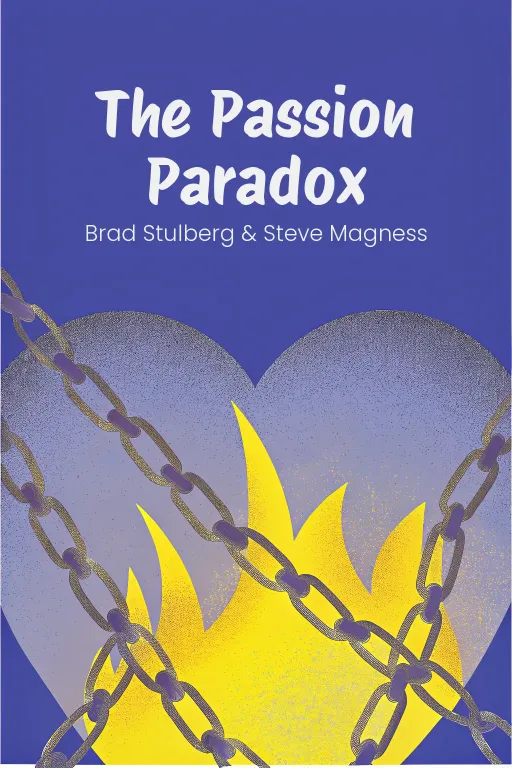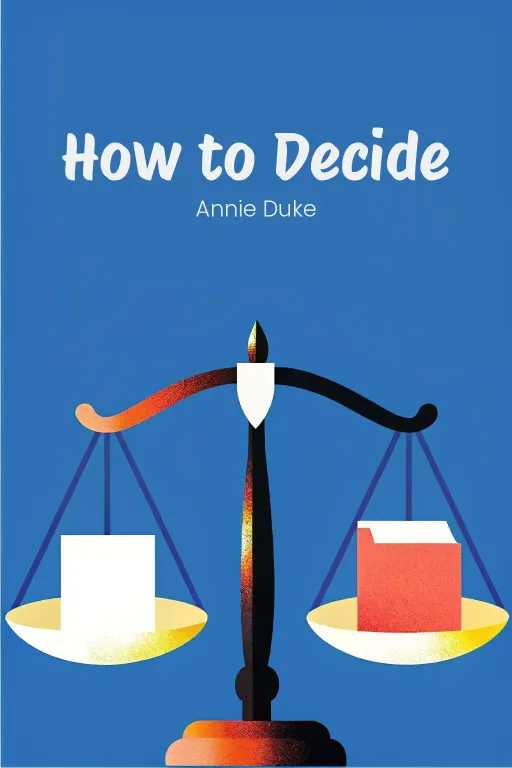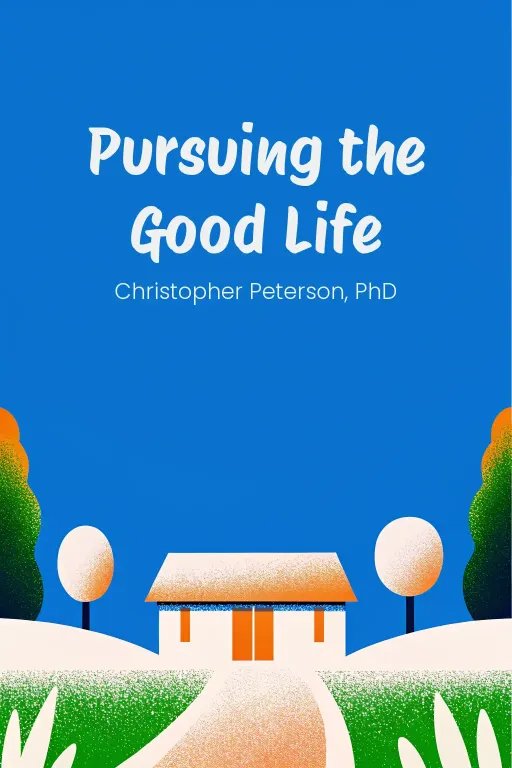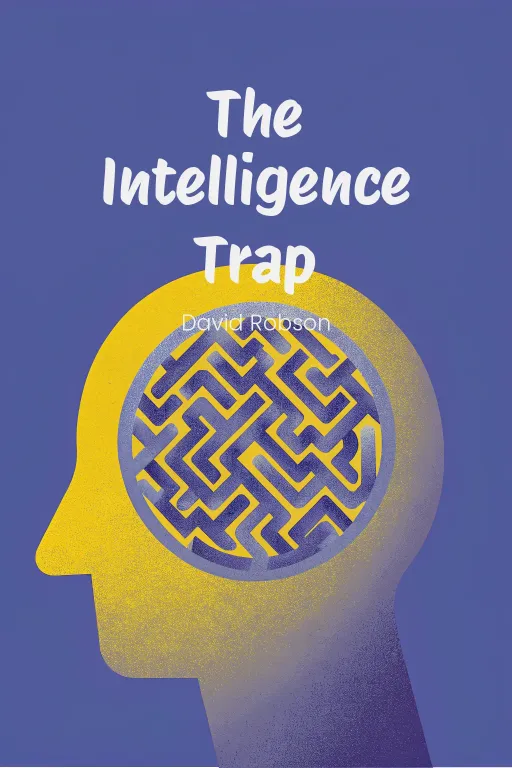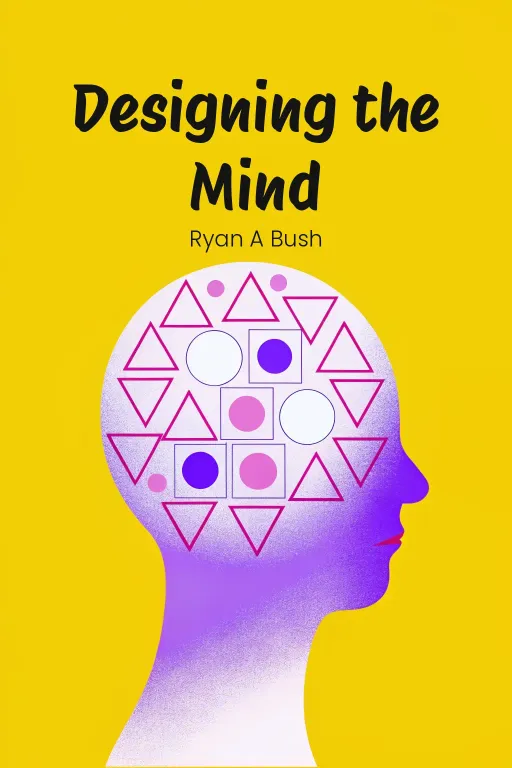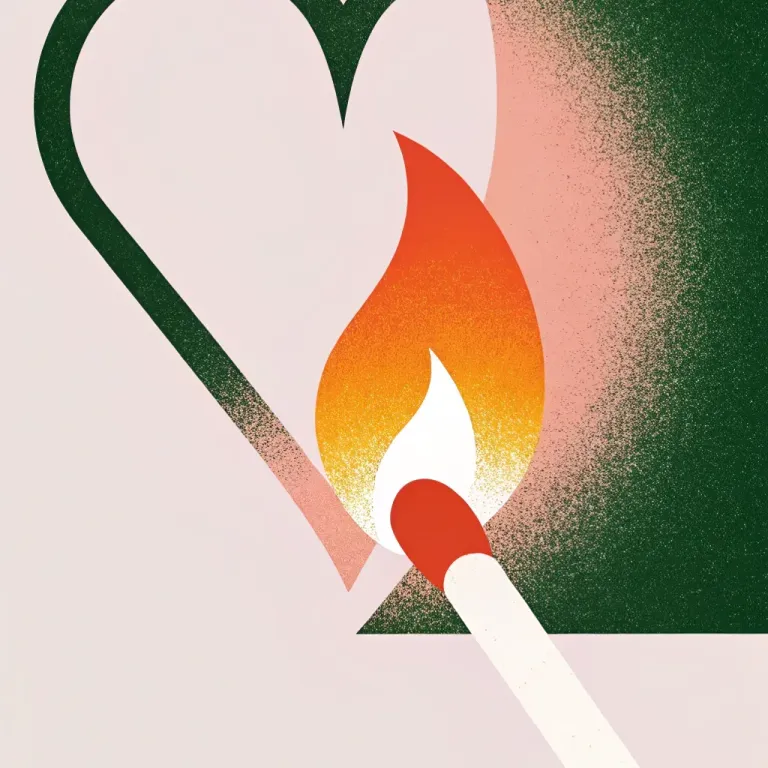
Passion's Edge: Fuel or Flameout?
Podcast by The Mindful Minute with Autumn and Rachel
A Guide to Going All In, Finding Success, and Discovering the Benefits of an Unbalanced Life
Passion's Edge: Fuel or Flameout?
Part 1
Autumn: Hey everyone, welcome back! Let's jump right in with a question: Have you ever been completely consumed by something? Like, your work, a hobby, some goal that just sets your soul on fire, but also... maybe leaves you feeling utterly drained? Rachel: Oh man, totally. It's that razor's edge, right? Between feeling like you can conquer the world and feeling like you're about to completely lose it. So, passion is the topic for today, huh? Which, let's be honest, is basically equal parts rocket fuel and impending disaster, isn't it? Autumn: Exactly! And that's really the heart of what we're talking about today—passion as this double-edged sword. It’s what makes us push boundaries and come up with incredible ideas, but it can also lead to burnout, tunnel vision, or even, like, a full-blown identity crisis if we're not careful. Rachel: So, the paradox is in play. It's like it drives people to do amazing things, but it also throws a wrench in the works if you get too carried away. Sounds like a classic love-hate situation. Autumn: Absolutely. The book we're diving into really unpacks this—the multi-faceted nature of passion. It emphasizes things like self-awareness, balance, and taking control of your own narrative as tools to channel passion in a way that's actually constructive. Think of it as a roadmap for thriving without burning everything to the ground. Rachel: Alright, so no "quit your job and follow your dreams" kind of pep talk here, then? Autumn: Nope, definitely not! It's way more practical than that—a mix of psychology, philosophy, and even some history to help you actually find that sweet spot between mastering something and finding real meaning in it, without, you know, completely losing yourself. Rachel: Okay, I'm intrigued. So, what's the plan here? What are we going to talk about? Autumn: We’re going to break this down into three key areas. First, we'll really dig into the double-edged sword aspect of passion itself—what makes it so powerful, but also where the potential pitfalls lie. Rachel: Like trying to juggle a flaming torch, right? It looks awesome when it works, but one wrong move... Yikes. Autumn: Exactly! Great metaphor. Then, we’re tackling what the book calls harmonious versus obsessive passion—two very, very different ways of relating to the things we love. Rachel: Hmm, I'm guessing one's the chill, wise guide, and the other's the melodramatic main character? Something like that? Autumn: Pretty much! And then, finally, we'll get into some actionable strategies, some practical tools for actually cultivating that spark in a sustainable way. That's where we talk about how to approach passion with real intention, so it actually energizes you instead of just depleting you. Rachel: So, basically, the goal is to find passion without the built-in self-destruct button, huh? Got it. Autumn: Precisely! Let's explore how we can really embrace all the amazing things that passion offers, but at the same time, keep some semblance of balance in this, you know, crazy, ever-changing world we live in.
The Dual Nature of Passion
Part 2
Autumn: Okay, let's dive into passion as a double-edged sword, shall we? On one hand, it’s this incredible driving force behind so many amazing achievements – the kind of push that redefines what's possible. On the other hand, that same intensity can easily tip us into full-blown obsession. When passion isn't managed well, it doesn't just inspire; it consumes. Rachel: So, essentially, passion is like a superpower with a serious downside. It can help you soar, but if you're not careful, it can crush you. Reminds me of Dominique Moceanu. Olympic gold medalist, right? But from what I understand, the external success masked a lot of internal turmoil. That fire, it sounds like it was burning her up. Autumn: Exactly! Being part of the "Magnificent Seven" at the 1996 Olympics should have been the highlight of her career. But her victory was overshadowed by intense pressure and a general feeling of unhappiness. She later admitted her entire self-worth was tied to external approval – what her coaches and parents thought about her performance, not whether she actually enjoyed gymnastics. Rachel: Wow, that's rough. It's like her passion for gymnastics was no longer her own; it had been taken over by everyone else's expectations. Instead of fueling her, it became this harsh taskmaster, constantly demanding more. What a suffocating environment. Autumn: That's the dark side of passion. When it's rooted in external validation – parents, coaches, societal praise – it can lead to burnout and emotional disconnect. Dominique Moceanu's story resonates because it's a warning: unchecked passion doesn’t elevate; it erodes. Rachel: Which brings us back to this idea of fragility. The power of passion is also where it's most vulnerable. It makes you care deeply, but that deep caring can turn into tunnel vision, potentially blinding you to everything else. Autumn: Right, and this fragility isn’t a new concept. Passion has historically been linked to sacrifice or struggle. Did you know the word "passion" comes from the Latin "passio," meaning "to suffer?" Rachel: Wait a minute... so the origin of "passion" is actually suffering? Seriously? That kind of throws a wrench in the whole "follow your passion" mantra. Autumn: I know, right? Initially, it was used to describe the suffering of Christ on the Cross. Over time, the term evolved. By the Renaissance, artists and writers started blending this idea of suffering with intense emotions like love and desire. To them, passion wasn't just exhilarating; it was fraught with vulnerability and pain. Rachel: So, the Renaissance kinda took passion from the battlefield to the concert hall, mixing anguish with longing and turning suffering into art? That historical baggage reminds us that even when passion feels pure, it comes with strings attached, doesn't it? Autumn: Exactly. And zooming to today, we still see this tension. Passion can inspire love and commitment, or it can trap you in cycles of frustration and exhaustion. That’s where psychology comes in, offering a framework to understand why some thrive on passion while others crumble. Rachel: Ah, looks like you are about to bring up that harmonious versus obsessive passion debate. Autumn: Yes, let’s break it down. Psychologist Robert Vallerand distinguishes those two types, saying harmonious passion is about intrinsic motivation – you engage in something because you truly love it, and it fits into your life naturally. It leads to growth and fulfillment without taking over. Rachel: Sounds good so far. And its less-than-perfect sibling? Autumn: That’s obsessive passion. Here, the activity takes over part, or all, of your identity. It’s more than just something you love – it defines you. And often, it brings a constant need for external validation. People get trapped, chasing achievements or approval, and when that doesn’t come, their sense of self crumbles. It's what we saw with Dominique Moceanu. Rachel: So, harmonious passion is the comfy chair in the corner of the room. Obsessive passion is more like a gilded cage, trapping you while looking impressive to outsiders. Autumn: A perfect analogy! Harmonious passion integrates seamlessly into your life. Obsessive passion demands sacrifices that aren’t always worth it. Rachel: That begs the question, how do you know when your passion is going into obsession? It feels like the moment the scales tilt could be easily missed. Autumn: Mindfulness and self-awareness are essential. Ask yourself: why am I doing this? Because I genuinely love it, or am I chasing something external, like recognition, status, or avoiding disappointment? Reflection can help you spot when your passion is consuming more than it's giving. Rachel: So, self-awareness is step one. But what if you realize, “Oops, my passion is eating me alive?” Autumn: Great question! Then you need tools to recalibrate – like periodic reflection, mindful engagement, and reframing goals to focus on personal, intrinsic rewards. It’s about constantly realigning your passion to serve you instead of enslaving you. Rachel: So, passion maintenance is like maintaining a car. You check under the hood to avoid breaking in the middle of nowhere. Autumn: Exactly! And if you maintain balance and stay attuned to your inner motivations, your passion can be beautiful - taking you to extraordinary places. Rachel: Passion isn’t about flooring it nonstop, then; it’s about knowing when to accelerate and when to brake. That makes sense. Keep talking – I’m getting wisdom instead of chaos.
Harmonious vs. Obsessive Passion
Part 3
Autumn: Okay, so let's really break down harmonious versus obsessive passion . Because honestly, understanding the difference, that's what really helps us build a healthy, long-term relationship with the things we love . Harmonious passion? That's all about freedom, right? Choosing something because it genuinely brings you joy, because it vibes with who you are . It just flows into your life, doesn't take over . Obsessive passion, though, that's a different beast . It feels more like a battle, driven by outside pressures, what society tells you, or that inner need to feel validated, even when it's draining you . Rachel: Ah, so harmonious passion is like being in the driver's seat, you're in control . Obsessive is more like being strapped to a rocket – exciting at first, but then you realize you're not steering! You mentioned autonomy, and it sounds like that's the key difference . Does passion automatically turn obsessive the minute you lose that sense of choice? Autumn: Pretty much, yeah . That loss of freedom is huge . Psychologist Robert Vallerand, he's got this dualistic model of passion, and he explains it really well . Harmonious passion comes from doing something that feels personally important . But obsessive passion turns the activity into something almost compulsive – you feel like you HAVE to do it, because of internal or external pressures . And the result of losing that control? Boom . Joy vanishes . You stop enjoying the process and only focus on the end result . Rachel: Ugh, that sounds exhausting, no wonder it’s linked to burnout . And even worse, unethical shortcuts! The whole "win at all costs" thing . Autumn: Exactly! Research backs it up . People driven by obsessive passion? They're more likely to bend the rules, cheat, push boundaries to reach their goals . It's a slippery slope because they start thinking their worth depends on winning . They gotta win, no matter what it takes . Rachel: Right, and here’s the messed up part: even when they do win, it’s still not enough . It’s like a black hole, because they didn’t actually enjoy the journey, just that temporary reward . Is it any wonder these people wind up feeling like they're having an existential crisis? It's just so empty . Autumn: Totally . That feeling of empty victories is so important . And it's why Dominique Moceanu's story hits so hard . Winning an Olympic gold medal is huge, but, because her passion became obsessive, driven by the pressure to prove herself, that victory didn't actually make her happy . Instead of feeling amazing, she felt, like, nothing . Rachel: So ironic, right? The thing that's supposed to lift you up is actually dragging you down . It’s like gold-plating a prison cell – it looks fancy, but you're still stuck inside! Autumn: Exactly! That’s why it's so important to get our passions back on track . If we understand what makes harmonious passion work, we can be ambitious and driven without, you know, losing our minds or our integrity . Rachel: Okay, so tell me more about this "harmonious passion" thing . Why is it so different? Why doesn't it trap you? Autumn: Well, it all starts with why you're doing it in the first place . Harmonious passion is fueled by intrinsic motivation . So, you’re doing something because you genuinely like it, it helps you grow, or it makes you happy . Not because it defines who you are or because it’s a way to get something else . When you're harmoniously passionate, you're connected to your values . Which means you're better at knowing when to take a break and keep things balanced . Rachel: Hold on a sec . Balance? I mean, let's be real – passion and balance don't exactly go hand-in-hand . I mean, isn't the whole thing about passion that it takes over? That you're all-in, all the time? Autumn: That's where people get confused . Passion doesn't need to mean losing all sense of balance . And that's where harmonious passion is different . It integrates into your life without dominating it . People with harmonious passion, they don't let their whole identity wrap up in it . Instead, they see it as something that makes their life better, not something that consumes it . Rachel: Okay, I get the idea ... but where's the science to back this up? What keeps it from slipping into obsessive? Seems like a pretty fine line . Autumn: Good question! Let's go back to Vallerand's model . The key thing is autonomy . When you're harmoniously passionate, you feel free – you choose to do it because it lines up with what you believe in . You're not doing it because you feel pressured, obligated, or scared of failing . That sense of control is a buffer against obsession . Rachel: So, autonomy is like the safety net that catches you before you fall into the obsessive passion abyss . And that autonomy comes with the benefits you mentioned, like better resilience and mental health, right? Autumn: Exactly! Research shows that people with harmonious passion report feeling happier, healthier, and better able to handle challenges . They see those challenges as part of the journey, instead of threats to their identity, and that helps them adapt and keep going without burning out . Rachel: Which is huge, especially these days with all the constant comparison and the pressure to "hustle ." It must be so freeing to see passion as a partner instead of a drill sergeant . Autumn: Absolutely! And that’s why embracing harmonious passion isn't just about what you're doing . It's about the ripple effect it has on your whole life . It encourages engagement, happiness, and healthy balance, so you can thrive in every area, not just in that one specific thing you're passionate about . Rachel: Well, harmonious passion sounds like the dream, but what if someone is already, like, fully stuck in obsessive passion? Is there any way out? Or is it game over at that point? Autumn: It's definitely not game over! The most important thing is to really think about why you're doing what you're doing . By doing some honest self-reflection, reframing how we define success, and setting healthy boundaries, we can shift gears and create a more sustainable, harmonious relationship with our passions . Rachel: So, a remodeling process, then . I guess that's where tools like focusing on the process or using a support system kick in . Speaking of which... let's dive into how these guardrails can keep us from veering off course when our passion starts turning into an obsession .
Practical Strategies for Sustainable Passion
Part 4
Autumn: Exactly, Rachel. And that nicely sets us up for discussing practical strategies—ways to manage passion that not only protect you but actually make life richer. We're talking about things like self-distancing, mindfulness, and reevaluating priorities—all designed to align your passion with what truly motivates you and keeps things sustainable. Rachel: Alright, Autumn, I'm with you. But these strategies sound a bit… abstract. What do they “really” look like in practice? How can people actually use them? Autumn: Okay, great question. Let's start with self-distancing. Essentially, it's about stepping back from emotionally charged situations. When you're stuck in the middle of something intense, self-distancing lets you get some perspective, almost like you're advising a friend. Rachel: So, you're telling me to suddenly become detached and logical during a crisis? Channel my inner Spock while I'm freaking out? Autumn: In a way, yes! And there’s solid research that shows how effective this approach can be. Think about Rebecca Rusch. She's a champion endurance athlete, totally known for her resilience in races. Rachel: That sounds pretty intense. I'm already feeling exhausted just thinking about it! Autumn: Well, her secret weapon is self-distancing. When she is facing a monumental task, she pretends she's advising somebody else. During one race, she got completely lost. Instead of panicking, she asked herself, "What would I tell a friend in this situation?" Reframing her mindset helped her to think clearly and finish the race against the odds. Rachel: Okay, that’s pretty impressive. So, it’s like activating the rational part of your brain when your emotions are going haywire. Is there any science to back this up? Autumn: Absolutely. Studies by Igor Grossmann and others show that self-distancing helps you think more "wisely." When people look at their own issues from a distance, they're better at seeing their options, controlling their emotions, and making grounded decisions. You view the situation as an outsider. Rachel: Okay, that makes sense. When you're in the thick of it, even small problems feel huge. Taking a step back helps you see things more clearly. Autumn: Exactly. Even things like journaling can help to that end. Writing as a third person, like “Rachel is having a difficult time” can have the same affect. It's a very simple tool with surprising results for helping with complicated emotions. Rachel: I like it. But most of us aren't competing in extreme sports. How does this apply to someone working on a creative project or dealing with career frustrations? Autumn: Same principles apply. Whether you're working on an artist piece of art or navigating a career change, self-distancing still helps you pause and pivot away. It helps people challenge self-doubt, reframe, and realign personal goals. That's how by stepping back can gain clarity without feeling overwhelmed in the intensity of the moment. Rachel: Got it. So, that’s self-distancing. What about mindfulness? It’s a buzzword these days—how does it help keep passion in check? Autumn: Mindfulness is about staying grounded in the present. Not worrying about the future or dwelling on the past, just being fully engaged in the moment. When it comes to passion, mindfulness can help you focus on the enjoyment and process. Rachel: Let me guess, there's research on that, too. Autumn: Definitely! Studies show that mindfulness strengthens emotional resilience, which is really important for keeping passion alive without burning out. Simple things like meditation, or even just deep breathing, can sharpen your focus and calm your emotions. If you're a writer, instead of obsessing over getting published, you could use mindfulness to reconnect with writing. Rachel: Right, so mindfulness shifts the focus from "Will this be successful?" to "Am I enjoying this?" Autumn: Exactly! This is a shift from outcome and can totally change the way we approach our passions. If Dominique Moceanu had mindfulness as part of her strategy, then she would have just felt satisfaction just training. Rachel: Sounds like mindfulness cuts through the noise—whether it’s pressure, fear of failure, or anything else that can mess with your passions. Autumn: Absolutely. And it’s so accessible; mindfulness can be incredibly simple. Try spending just five uninterrupted minutes doing something you love—painting, playing music, whatever it is. Be present and enjoy it, no overthinking, just connecting with something you love to do. Rachel: Okay, got it. Now, what about reevaluating priorities? I mean, doesn't that basically mean giving up? Autumn: Not at all! Reevaluating isn’t about quitting. It's about making sure your passion lines up with your values and how you're feeling. Rachel: Okay, so it's like taking stock of your passions—making sure they still fit, rather than just letting them run wild. Autumn: Exactly! A lot of corporate leaders achieve so much success, but feel like they sacrificed their relationships along the way. Is this path still fulfilling? Are these sacrifices worth it? What can change so I can find balance? Rachel: I get it. What about tweaking? Like tuning a guitar that's out of key. Autumn: The perfect analysis. And practical actions can make your analysis even more actionable. You can assess whether your goals align with yours. Mentors can also point out areas you might no have noticed. Reflecting on how your passion contributes to your well being. Rachel: Okay, I'm sold. Here's a challenge: what if you adjust and discover your passion is completely wrong for your life? Now what? Autumn: That is when you need to take a step back from reality to re-make those difficult decisions. Choosing what's best of your well being is important. Reevaluating allows you to create new passions or pursue different values. Rachel: So, it seems like maintaining passion involves owning it, thinking about it, and being honest when it's no longer working. Not exactly a fairy tale, but very useful. Autumn: In the end, balance is how to apply passions to a dynamic lifestyle without controlling it. Passion comes with mindfulness, self-distancing, and awareness. By doing so, it's no longer a chore and instead becomes a vital resource. Rachel: Okay, so the key is passion as a partnership, not a power struggle. How do we incorporate these suggestions into our everyday lives?
Conclusion
Part 5
Autumn: Okay, so to recap, we've really dug into how passion can be this incredible source of joy and drive, but also how it can totally throw your life out of whack if it gets out of hand. We talked about its double-edged nature, the difference between a healthy and, well, not-so-healthy passion, and some actionable ways to keep your relationship with your passions on the right track. Rachel: Right. It's kind of like fire, isn't it? Passion can light up your world, guide you forward, or, you know, burn everything to the ground if you're not careful. The key is nurturing that harmonious passion through things like autonomy, being mindful, and “really” knowing yourself. Avoid falling into the obsessive traps of seeking validation from everyone else or getting so laser-focused that you lose sight of everything else. Autumn: And that’s the big idea here: passion should enhance your life, not define it. It's about weaving it into your life in a way that it genuinely adds to your sense of fulfillment, not just your list of accomplishments. Rachel: Precisely. It’s not always about sprinting full speed ahead all the time. Sometimes true passion means pausing, you know, reassessing, and creating room for a little bit of balance. Because let's be real, perfection isn't the goal, it's creating something that lasts. So, how would someone apply this to modern urban life? Autumn: Great question, Rachel. So really, how can we translate this into action in our everyday lives? Take a moment to really think about your passions and ask yourself: are they genuinely enriching your life, or are they draining you more than they're giving? And if it's the latter, then maybe it's time to step back, rethink things, and rekindle that spark in a more sustainable way. Rachel: Yeah, because at the end of the day, passion is not just the thing that propels you, it's also what keeps you centered. Nurture it, respect it, and it'll return the favor. So, until our next conversation, stay inquisitive, be intentional, and stay connected to what ignites your inner fire.





